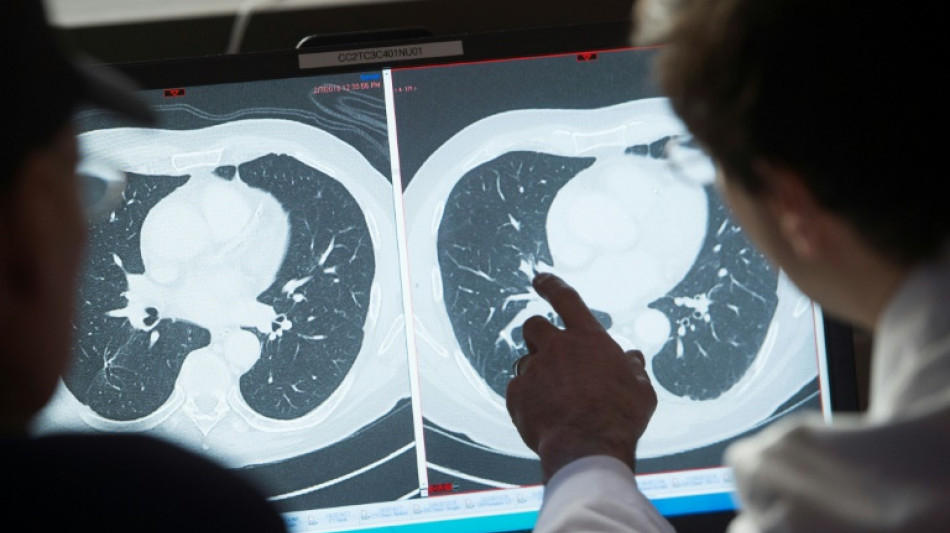
-
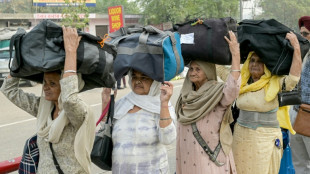 Indian Sikh pilgrims enter Pakistan, first major crossing since May conflict: AFP
Indian Sikh pilgrims enter Pakistan, first major crossing since May conflict: AFP
-
Asian markets slip as traders eye tech rally, US rate outlook

-
 Nintendo hikes Switch 2 annual unit sales target
Nintendo hikes Switch 2 annual unit sales target
-
Typhoon flooding kills 5, strands thousands in central Philippines
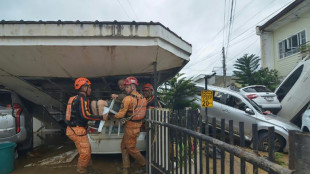
-
 Jobe Bellingham finding his feet as Dortmund head to City
Jobe Bellingham finding his feet as Dortmund head to City
-
US civil trial to hear opening arguments on Boeing MAX crash
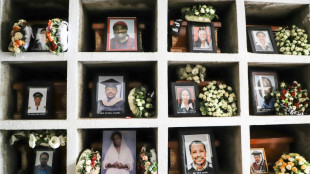
-
 Jamie Melham on Half Yours only second woman to win Melbourne Cup
Jamie Melham on Half Yours only second woman to win Melbourne Cup
-
Myanmar scam hub sweep triggers fraudster recruitment rush
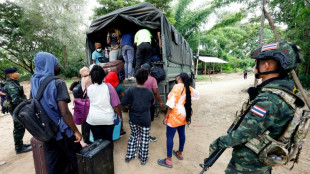
-
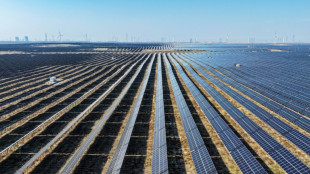 Biggest emitter, record renewables: China's climate scorecard
Biggest emitter, record renewables: China's climate scorecard
-
Floods strand people on roofs as typhoon pounds Philippines
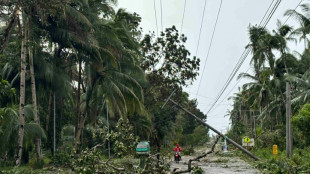
-
 Asian markets swing as trades eye tech rally, US rate outlook
Asian markets swing as trades eye tech rally, US rate outlook
-
South Korea to triple AI spending, boost defence budget
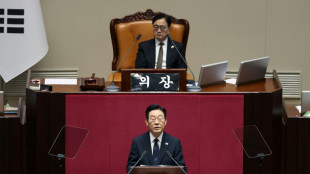
-
 Trott to leave as Afghanistan coach after T20 World Cup
Trott to leave as Afghanistan coach after T20 World Cup
-
Late queen's fashion to go on show at Buckingham Palace
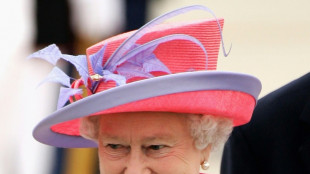
-
 In Morocco, exiled Afghan women footballers find hope on the pitch
In Morocco, exiled Afghan women footballers find hope on the pitch
-
EU scrambles to seal climate deal ahead of COP30
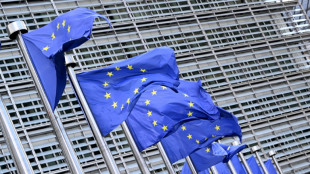
-
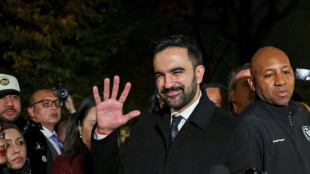 New Yorkers expected to pick leftist Mamdani in stunning election
New Yorkers expected to pick leftist Mamdani in stunning election
-
Pining for Pinochet: how crime fanned nostalgia for Chile's dictator

-
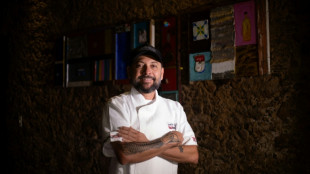 Why an Amazon chef said no to a vegan dinner for Prince William event
Why an Amazon chef said no to a vegan dinner for Prince William event
-
Cement maker Lafarge on trial in France on charges of funding jihadists
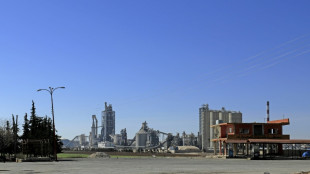
-
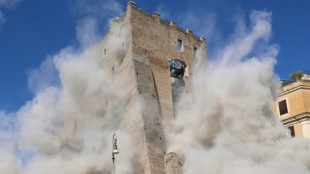 Worker dies after medieval tower partly collapses in Rome
Worker dies after medieval tower partly collapses in Rome
-
Run-machine Labuschagne in form of his life ahead of Ashes
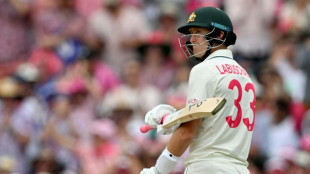
-
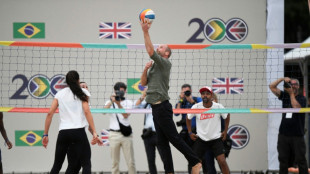 Prince William plays football, volleyball in Rio on climate trip
Prince William plays football, volleyball in Rio on climate trip
-
Jamaicans mobilize aid in aftermath of Melissa's wreckage
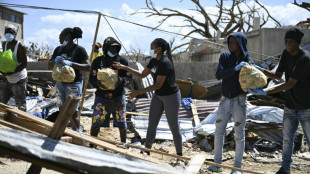
-
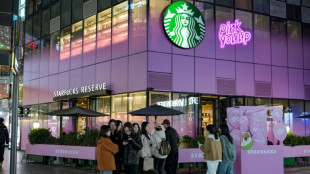 Starbucks cedes China control to Boyu Capital
Starbucks cedes China control to Boyu Capital
-
'Wild at Heart' actress Diane Ladd dies at 89
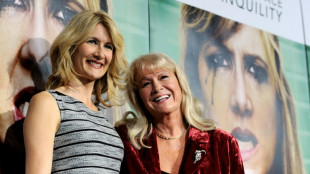
-
 Xhaka lifts Sunderland into fourth after Everton draw
Xhaka lifts Sunderland into fourth after Everton draw
-
Brazil records biggest annual fall in emissions in 15 years: report
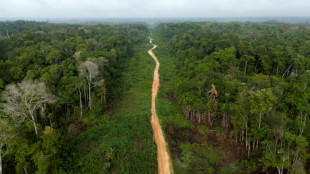
-
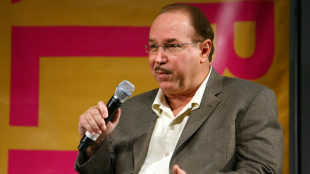 Victor Conte, mastermind of BALCO doping scandal, dead at 75: company
Victor Conte, mastermind of BALCO doping scandal, dead at 75: company
-
Trial opens in 1st US civil case on 2019 Boeing MAX crash
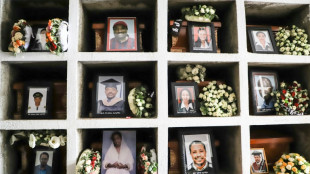
-
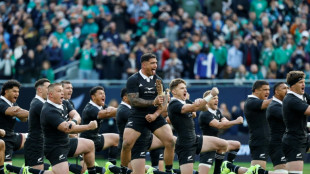 Barrett brothers out of All Blacks' clash with Scotland
Barrett brothers out of All Blacks' clash with Scotland
-
Medieval tower partially collapses in Rome, trapping worker
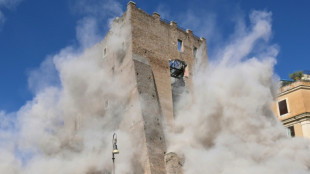
-
 Arsenal's Arteta says injured Gyokeres out of Slavia Prague tie
Arsenal's Arteta says injured Gyokeres out of Slavia Prague tie
-
Alonso says 'quality' Wirtz helped get him Real Madrid job
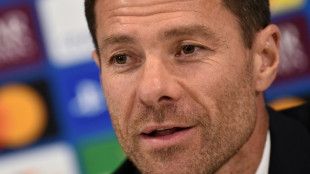
-
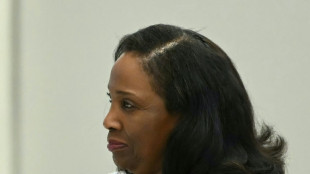 US Fed's Cook warns inflation to stay 'elevated' next year
US Fed's Cook warns inflation to stay 'elevated' next year
-
Blue heaven: huge crowds salute Los Angeles Dodgers in victory parade

-
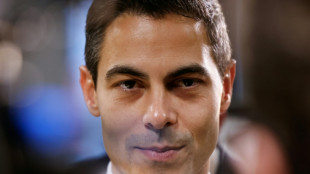 Dutch centrist Jetten clinches election win: final tally
Dutch centrist Jetten clinches election win: final tally
-
Mamdani extends olive branch to anxious NY business community
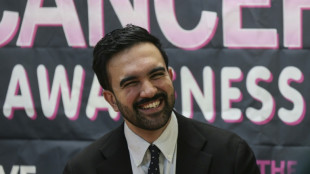
-
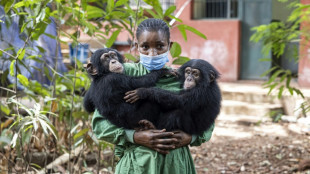 Sierra Leone chimpanzee sanctuary reopens after deforestation protest
Sierra Leone chimpanzee sanctuary reopens after deforestation protest
-
Shein bans sex dolls after France outrage over 'childlike' ones

-
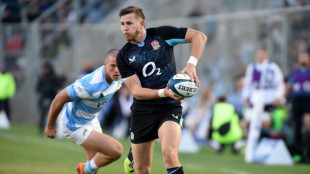 England full-back Steward doubtful for Autumn rugby clash with Fiji
England full-back Steward doubtful for Autumn rugby clash with Fiji
-
Bayern know how to 'hurt' PSG, says Neuer

-
 Rybakina downs Swiatek to reach WTA Finals last four
Rybakina downs Swiatek to reach WTA Finals last four
-
Ex-France international Ben Yedder to stand trial on rape charges
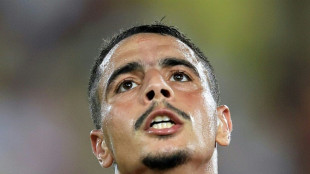
-
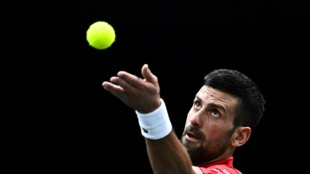 Djokovic confirmed for ATP Finals, says Italian federation boss
Djokovic confirmed for ATP Finals, says Italian federation boss
-
Trent should be remembered for 'great' Liverpool moments, says Slot

-
 Stock markets diverge despite boost from AI deals
Stock markets diverge despite boost from AI deals
-
Prince William awed by Rio on climate-focused trip to Brazil
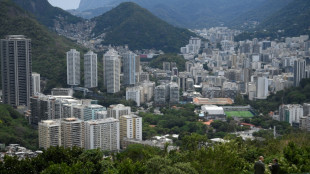
-
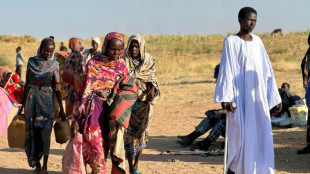 Violence in Sudan's El-Fasher could be war crimes, says top court
Violence in Sudan's El-Fasher could be war crimes, says top court
-
Rybakina downs Swiatek in WTA Finals


Higher cost of US cancer care doesn't improve survival rates: study
The United States spends twice as much on cancer care as the average high-income country, but gets only middle-of-the-table survival results, a study said Friday.
The results were published in the Journal of the American Health Association (JAMA) Health Forum.
"There is a common perception that the US offers the most advanced cancer care in the world," said lead author Ryan Chow, who is pursuing a medical degree and PhD at Yale University, in a statement.
America is touted for developing advanced new treatments and approving them faster than other countries, and the team were curious about whether this translated into better outcomes.
Out of 22 high-income countries, the United States was found to have by far the highest spending rate: it spends $200 billion per year on cancer care, or roughly $600 per capita, compared to the average of $300 per capita in high-income countries.
But the researchers found this additional spending did not translate into better population-level cancer mortality rates.
"In other words, countries that spend more on cancer care do not necessarily have better cancer outcomes," said Chow.
The US was only slightly better than average, while six countries -- Australia, Finland, Iceland, Japan, South Korea, and Switzerland -- had both better outcomes and lower spending.
Of the countries examined, South Korea and Japan had the lowest cancer mortality rates, while Denmark had the highest, followed by France.
Smoking is the biggest driver of cancer deaths, a factor expected to make cancer outcomes appear more favorable in countries with traditionally low smoking rates such as the US.
After controlling for smoking rates, they found the US was exactly in the middle. Nine countries -- Australia, Finland, Iceland, Japan, Korea, Luxembourg, Norway, Spain, and Switzerland — had lower smoking-adjusted cancer mortality.
There are a constellation of factors behind surging costs in the US, the team wrote.
Cancer drug expenditures account for 37 percent of privately insured US cancer expenditure, and these drugs cost far more in the US than other countries.
Unlike countries with public health systems, US state-run insurance called Medicaid cannot negotiate drug prices.
Additionally, the US Food and Drug Administration (FDA) does not consider pricing when evaluating drug approvals, unlike other countries such as Britain where cost-effectiveness must be factored.
Much of the growth in drug spending has been attributed to newer types of drugs such as monoclonal antibodies, kinase inhibitors, and immune checkpoint inhibitors, even though the evidence in their favor is often marginal.
Finally, medical care is also more aggressive in the US: "Within the last six months of life, US patients with cancer are admitted to the intensive care unit at twice the rate of other countries and are more likely to receive chemotherapy," the team wrote.
Specialty societies advocate for more screening than guidelines suggest, further increasing costs, and low-risk tumors, such as early-stage prostate cancers, are more often subject to intervention despite evidence they would unlikely cause harm if untreated.
"Other countries and systems have much to teach the US if we could be open to change," said co-author Elizabeth Bradley, president of Vassar College.
O.Krause--BTB




